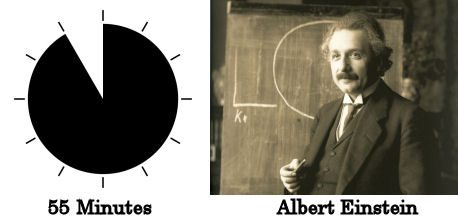Speaker: William Allen Butler? Henry Clapp? John Bright? Junius Henri Browne? Howard Crosby? Henry Armitt Brown? Benjamin Disraeli? William Cowper?
Topic: Horace Greeley? Benjamin Disraeli? George Law? David Davies?
Question for Quote Investigator: Whenever I hear the claim that an individual who has excelled in life is a self-made man or a self-made woman I think of a well-known clever riposte:
Person A: He is a self-made man.
Person B: Yes, I have heard him say that many times, and he certainly worships his creator.
This quip is based on a comical form of self-reference. The definition of “self-made” implies that the man’s creator is the man himself. Hence, when he worships his creator he is worshiping himself. Do you know who originated this joke and who was being criticized?
Reply from Quote Investigator: A precursor that expressed the core of the joke appeared in a satirical poem composed in 1858 titled “Two Millions” by William Allen Butler. The work described a millionaire who obeyed the following “higher law” with “all his heart and soul and mind and strength”:1
To love his maker, for he was SELF-MADE!
Self-made, self-trained, self-willed, self-satisfied,
He was himself, his daily boast and pride.
Thanks to Professor Ian Preston who located the above citation and shared it with QI. The entire poem was reprinted in the magazine “Titan” in London.2
Also, sections of the work were reprinted by reviewers in periodicals such as “The Knickerbocker” in New York.3 Thus, the jest was further disseminated.
A close match to the popular form of the joke appeared in March 1868 in multiple newspapers such as “The Stillwater Messenger”4 of Minnesota and the “Burlington Hawk Eye” of Iowa. In the following statement “The World” was a reference to a New York newspaper. Boldface has been added to excerpts:5
The World says Horace Greeley is “a self-made man who worships his Creator.”
Also in March 1868 the “Springfield Republican”6 of Massachusetts and the “Utica Daily Observer” of New York identified the originator of the jibe as Henry Clapp who was the editor of a New York literary newspaper called “The Saturday Press”:7
Henry Clapp says that Horace Greeley is a self made man, and worships his creator.
In July 1868 “Harper’s Magazine” published a version of the remark and suggested that Greeley would probably respond with good humor:8
We take it that no man laughed more heartily than Mr. Greeley did when he was told what Henry Clapp had said about him. Said Clapp: “Horace Greeley is emphatically a self-made man, and he worships his Creator!”
In 1869 a non-fiction volume titled “The Great Metropolis: A Mirror of New York” by Junius Henri Browne was published, and the author applied the joke to a New Yorker named George Law:9
He is frequently to be seen walking and driving about on his private business; occasionally appears at Fulton Market in quest of oysters, which he swallows voraciously as if he were more savage than hungry; and now and then figures as a vice-president of some public meeting, which he never attends. Such is Live-Oak George, who, as has been said, is a self-made man, and worships his creator.
By June 1870 a different version of the joke was circulating in England. The phrase “adores his maker” replaced the phrase “worships his creator”. A short item published in newspapers in Newcastle-upon-Tyne10 and Leicester11 claimed that the politician John Bright had aimed the barb at the politician Benjamin Disraeli:
One of Mr. Disraeli’s admirers, in speaking about him to John Bright, said, “You ought to give him credit for what he has accomplished, as he is a self- made man.” “I know he is,” retorted Mr. Bright, “and he adores his maker.” -Court Journal.
Here are additional selected citations in chronological order.
Continue reading “Quote Origin: “He Is a Self-Made Man.” “Yes, And He Worships His Creator.””

